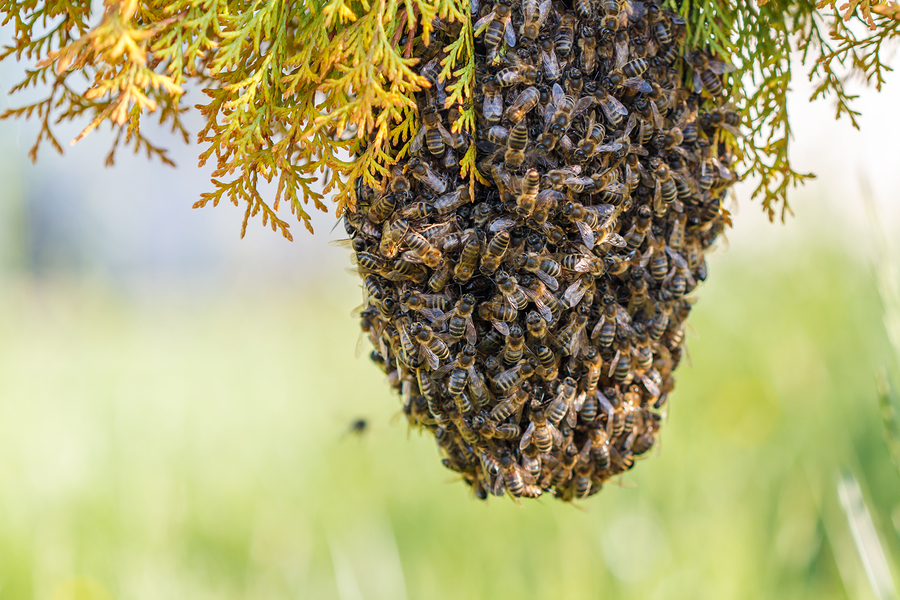Bees are busy this time of year. While a lot of the common bees you’re likely to encounter around your home and outdoors this summer are harmless, some are stinging insects will attack if threatened, and cause severe allergic reactions in some cases. It’s important to know which bees are harmless, which are stinging insects, how to avoid them, and how to get rid of them.
1. Bumble Bees
Bumble bees are relatively harmless and beneficial insects. They can be identified by their yellow and black stripes. If their nest is threatened, they can become aggressive and sting.
2. Cicada Killers
Cicada Killers are a type of large wasp and don’t usually sting humans unless provoked, although their appearance is intimidating. Their preference is for Cicadas, as the name suggests. These wasps can be a nuisance for homeowners if a nest is found in the ground around your home. For removal, contact a licensed pest control or bee removal company.
3. Carpenter Bees
Carpenter bees resemble bumble bees but lack hair on their abdomen, and are most commonly seen in the Spring. While they don’t usually sting humans (females will if threatened), they can do damage to your home. Carpenter bees bore small holes in wooden structures to create nests.
4. Yellow Jackets
Yellow jackets are one of the most feared stinging insects and with reason…they’re aggressive and cause extremely painful stings, often repeatedly. It’s best to avoid them when possible or to remain still when in contact with them. Swatting yellow jackets provokes them to attack. They’re most commonly seen in the Summer months.
5. Hornets
Hornets are brown and yellow striped with reddish colored wings, and sometime mistaken for Cicada Killers. They build above-ground nests, usually in trees, and are active in the Spring. It’s recommended you contact a pest professional to remove a hornet nest, but they do not pose a serious threat to humans and will die or hibernate in the Fall.
6. Paper Wasps
Paper wasps are large, aggressive wasps that cause painful bites and sometimes severe allergic reactions. They’re most likely to sting if their nest is threatened or disturbed. It’s recommended to contact a pest company for nest removal.
For proper bee or stinging insect identification, contact your local bee removal expert. For Bee Removal Services in your area, click on the links below.

